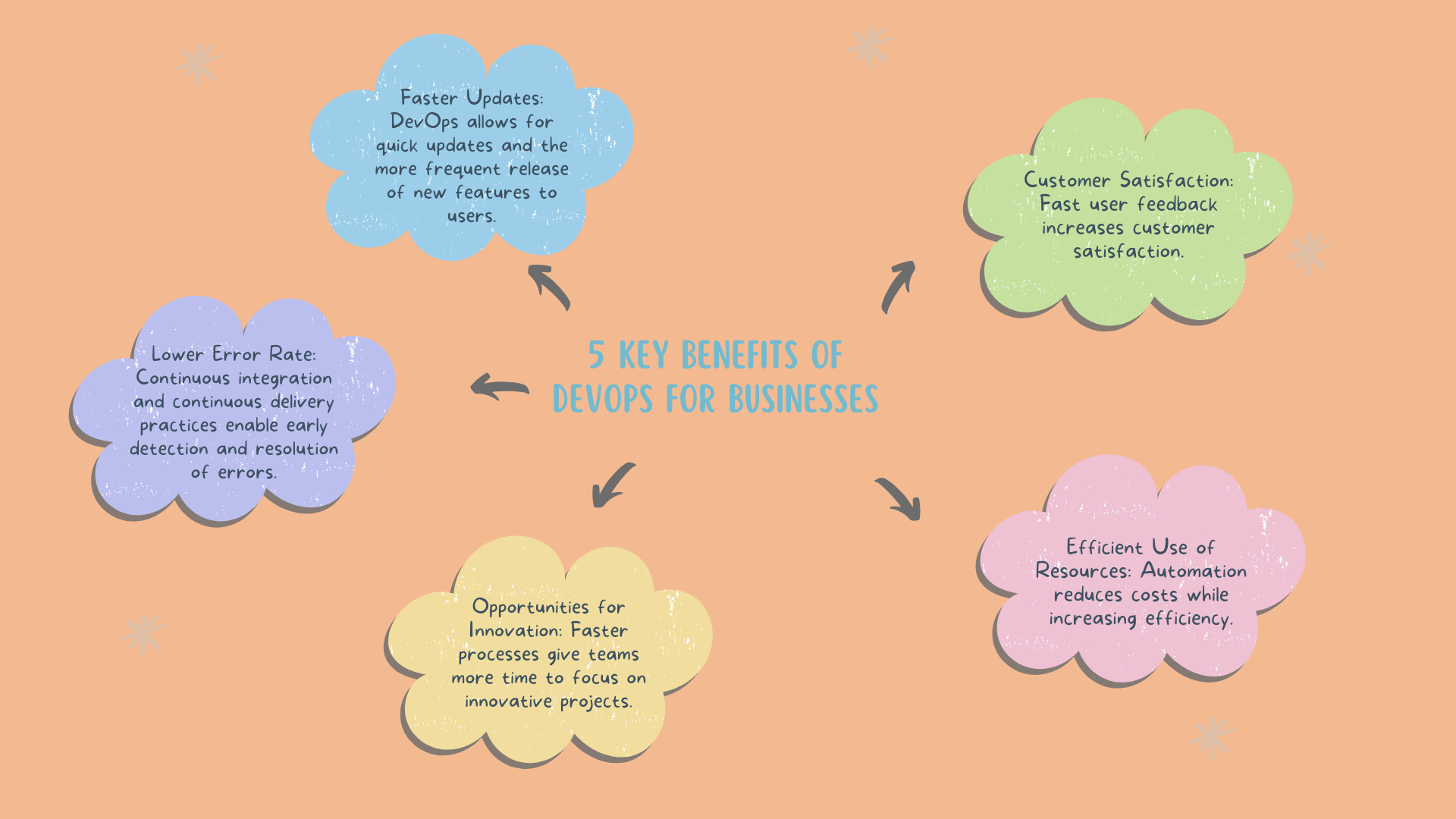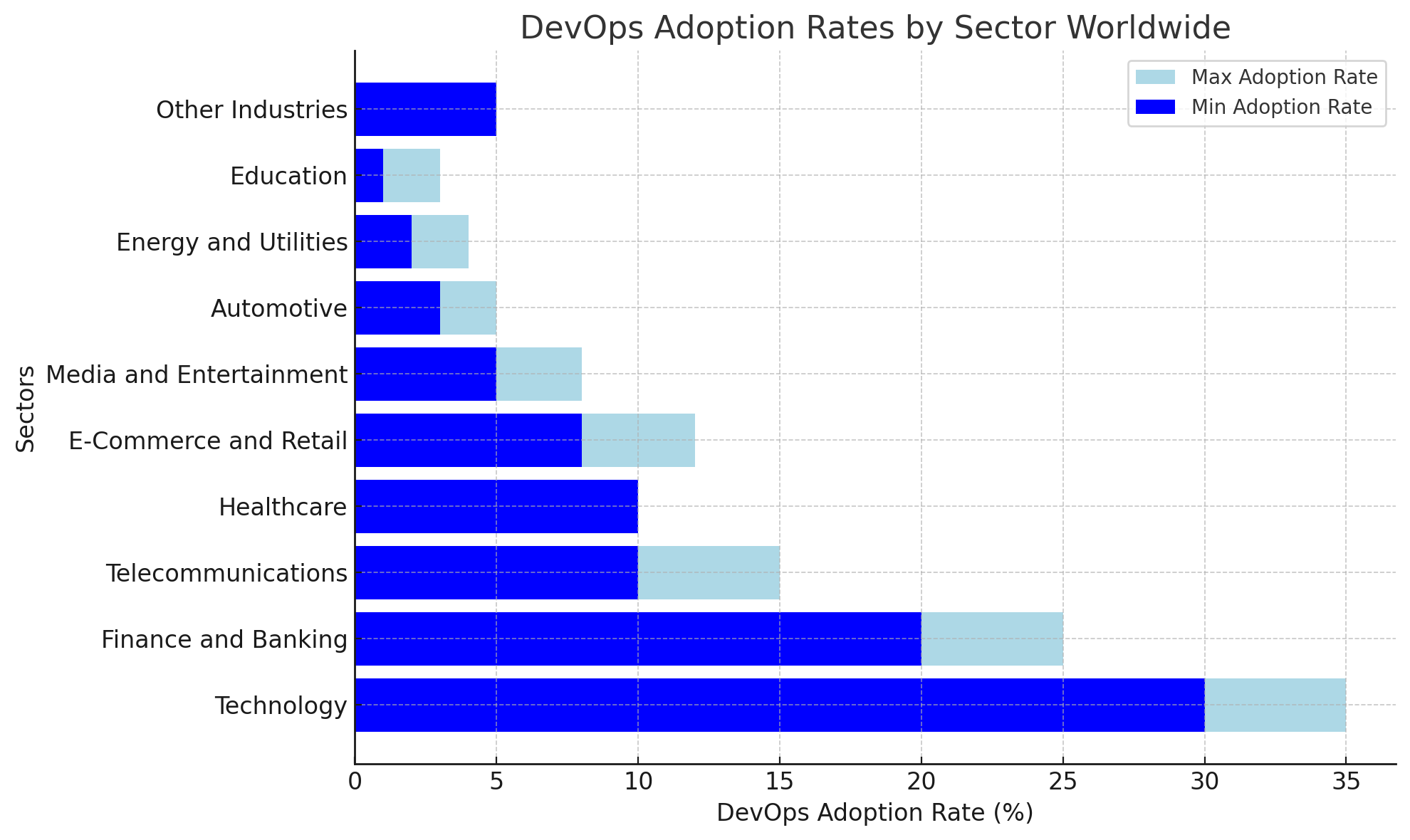DevOps is a methodology that merges software development (Development) and operations (Operations) processes to foster collaboration between these two fields, allowing software to reach users more quickly, reliably, and effectively. Unlike traditional software development processes, DevOps ensures a higher level of coordination between teams, accelerates the development cycle, and enhances the reliability of the resulting product.
What Is the Purpose and Benefits of DevOps?
DevOps aims to eliminate silos within the software development process, enabling teams to work together more closely. In traditional methods, development and operations teams often work independently; however, with DevOps, these teams are brought together within a single organizational structure. The main goal of this approach is to deliver high-quality software to users faster. DevOps also enables quicker feedback from users and the early identification and resolution of errors.
How Does the DevOps Process Work?
DevOps organizes the development, testing, deployment, and monitoring stages of the software lifecycle through modern methods such as automation and continuous integration. In this process, all teams are involved at different stages of the software lifecycle. For example, during software development, code changes are continuously tested to identify and fix potential errors early on. This approach increases software reliability and minimizes error rates. Automation reduces manual workload in testing and deployment, enhancing efficiency and minimizing human error.
Core Principles of DevOps: Speed, Reliability, and Efficiency
DevOps relies on specific principles to ensure speed and efficiency in software development. Automation is a cornerstone, as it saves time by automating many repetitive tasks within the development cycle. Continuous integration and continuous delivery practices allow software to be delivered more frequently and reliably. Feedback loops, an essential element of the DevOps ecosystem, help teams understand user needs better and make the software more responsive to user expectations.

The Role and Importance of DevOps Tools
Tools used in the DevOps process play a critical role in accelerating the software development cycle and enhancing quality. These tools automate processes such as code integration, testing, and deployment. For example, continuous integration tools like Jenkins and GitLab automate the testing process, enabling teams to detect code errors more quickly. Container management tools like Docker and Kubernetes provide consistency between development and production environments, increasing software reliability and simplifying operational processes.
DevOps is not only a technical approach but also a culture of collaboration. In this culture, development and operations teams work together to make processes more efficient. DevOps establishes a strong communication network among teams, facilitating faster resolution of issues within projects. By sharing responsibilities throughout the software development process, each team member contributes at all stages, reducing project delays and enabling each team to work more effectively towards common goals.
Enhancing Quality with Continuous Integration (CI) and Continuous Delivery (CD)
Continuous integration (CI) and continuous delivery (CD), key components of the DevOps approach, enable early error detection in software development. CI allows developers to integrate code changes frequently, ensuring the smooth progression of software, while CD enables the automatic transfer of software to test and production environments. Through this process, the software undergoes thorough testing before reaching the user, minimizing potential errors and delivering a more reliable and high-quality software experience.
5 Key Benefits of DevOps for Businesses
Faster Updates: DevOps allows for quick updates and the more frequent release of new features to users.
Lower Error Rate: Continuous integration and continuous delivery practices enable early detection and resolution of errors.
Customer Satisfaction: Fast user feedback increases customer satisfaction.
Efficient Use of Resources: Automation reduces costs while increasing efficiency.
Opportunities for Innovation: Faster processes give teams more time to focus on innovative projects.
Agile and DevOps Together: Faster and More Flexible Processes
Agile and DevOps approaches stand out as indispensable elements of modern software development processes. Agile enables flexible and fast-paced development by advancing in smaller, more frequent cycles. DevOps extends Agile’s flexible structure by enabling faster and more reliable delivery of software to users through continuous integration and delivery. Using these two approaches together allows software projects to yield results faster and respond more promptly to user needs.
Key Points to Consider When Building a DevOps Team
Building an effective DevOps team is critical to an organization’s success in software development processes. Key points to consider in this process include:
- Strong Communication and Collaboration: Establishing an effective communication network is essential for team alignment.
- Automation Skills: Achieving automation competency in processes enhances productivity.
- Cross-Functional Expertise: The team should consist of members with diverse skills.
- Security Focus: Security should be prioritized at every stage of the software lifecycle.
- Flexibility and Adaptability: Teams should be able to quickly adapt to changing business needs.
The Impact of DevOps on Software Quality: The Secret to Delivering Quality Products
DevOps improves software quality by enhancing the efficiency of testing and integration processes. Errors are identified and corrected at early stages, resulting in software that is more reliable and robust for users. Continuous focus on user expectations ensures that the software meets real needs. Feedback loops help tailor the product to user expectations.
What are the usage rates of DevOps worldwide by industry?
 DevOps adoption varies by sector worldwide, adapting to specific needs and technological infrastructure. Predominantly used in technology, finance, telecommunications, healthcare, and e-commerce, DevOps enables rapid development, flexibility, and secure operations, addressing the high demands of these industries. Technology leads with a 30-35% adoption rate, followed closely by finance and banking at 20-25%. Telecommunications (10-15%) and healthcare (10%) sectors utilize DevOps to optimize network infrastructure and secure data. E-commerce and retail account for 8-12%, while media and entertainment, automotive, and energy have lower adoption rates, ranging from 2-8%. Sectors such as education and public services have just started to integrate DevOps at 1-5%, driven by increasing digitalization and IoT applications. Overall, DevOps is most widely adopted in high-demand sectors, with steady growth in other industries as they embrace digital transformation.
DevOps adoption varies by sector worldwide, adapting to specific needs and technological infrastructure. Predominantly used in technology, finance, telecommunications, healthcare, and e-commerce, DevOps enables rapid development, flexibility, and secure operations, addressing the high demands of these industries. Technology leads with a 30-35% adoption rate, followed closely by finance and banking at 20-25%. Telecommunications (10-15%) and healthcare (10%) sectors utilize DevOps to optimize network infrastructure and secure data. E-commerce and retail account for 8-12%, while media and entertainment, automotive, and energy have lower adoption rates, ranging from 2-8%. Sectors such as education and public services have just started to integrate DevOps at 1-5%, driven by increasing digitalization and IoT applications. Overall, DevOps is most widely adopted in high-demand sectors, with steady growth in other industries as they embrace digital transformation.
Integrating Security: The Process of Delivering Secure Software
In traditional software development processes, security tests are typically performed at later stages, whereas in DevOps, security is integrated into each stage of the process. Known as DevSecOps, this approach incorporates security into DevOps workflows. Automated security tests help detect and fix vulnerabilities early, enhancing the overall security of the software.
DevOps is a methodology designed to bring speed, reliability, and efficiency to modern software development. Strengthening collaboration between teams, reducing manual workload through automation, and increasing software reliability, this approach provides organizations with customer satisfaction and a competitive advantage. DevOps is increasingly adopted and is becoming an essential part of the software development world due to its flexible structure and proven benefits.
Which companies use DevOps?
Companies that use DevOps are generally large-scale organizations that optimize their software development processes by leveraging benefits such as speed, reliability, and continuous integration. The flexibility, automation, and rapid feedback loops provided by DevOps are especially critical in sectors that are technology-based or require fast innovation. Here are some leading companies that actively use and have successfully integrated DevOps into their processes:
Amazon (AWS): Amazon has integrated DevOps methodologies into its infrastructure through Amazon Web Services (AWS). While providing flexible cloud services to businesses, AWS also offers a robust infrastructure for DevOps with tools supporting automation, continuous integration (CI), and continuous delivery (CD) processes.
Netflix: Netflix is one of the most well-known companies embracing DevOps. Thanks to DevOps and cloud technologies, Netflix provides seamless content streaming. It achieves fast and reliable software updates through a microservices architecture with automatic scaling and high processing capacity.
Google: Google applies DevOps principles to enhance system performance and strengthen collaboration across teams. It also ensures stable infrastructure operation through its Site Reliability Engineering (SRE) team. Google Cloud Platform (GCP) supports users in managing DevOps processes with various tools and automation solutions.
Facebook: Facebook has adopted a DevOps culture, enabling rapid development cycles. By using continuous integration and deployment processes, it quickly tests and releases new features to users, continually improving the user experience and minimizing error rates.
Microsoft:Microsoft effectively utilizes DevOps processes, particularly with its Azure DevOps platform. Through this platform, Microsoft provides users with tools for software development, testing, and deployment. The adoption of DevOps by Microsoft has resulted in speed and efficiency in its product development processes.
Spotify: Spotify has gained speed in its software development processes by applying DevOps methodologies. Using a microservices architecture, Spotify allows independent development teams to rapidly deliver new features, continuously offering innovative solutions to its users.
IBM: IBM, a significant technology company with hybrid cloud and AI-based solutions, supports DevOps applications. IBM Cloud provides CI/CD tools, security solutions, and management platforms to accelerate DevOps processes and enable automation. IBM’s DevOps solutions ensure effective and efficient software development processes, especially for enterprise clients.
Etsy: The e-commerce platform Etsy uses DevOps processes to maintain the quality of its services and implement updates quickly. With continuous deployment and automation processes, it reduces error rates and applies changes rapidly to enhance the user experience.
Adobe: Adobe utilizes DevOps processes in its services like Creative Cloud and Document Cloud. This enables software updates, security patches, and new features to be continuously provided to customers. By automating DevOps processes, Adobe enhances user satisfaction and product reliability.
Capital One: Capital One, a leader in the banking and finance sector, uses DevOps applications to develop its digital solutions quickly and reliably. By integrating security into its DevOps processes, Capital One establishes a digital infrastructure that meets the highest security standards.
These companies optimize their software development processes and offer higher-quality services to their customers by leveraging the speed, efficiency, and security advantages of DevOps. Through DevOps, these organizations gain a competitive edge and deliver innovative solutions with faster market access.





